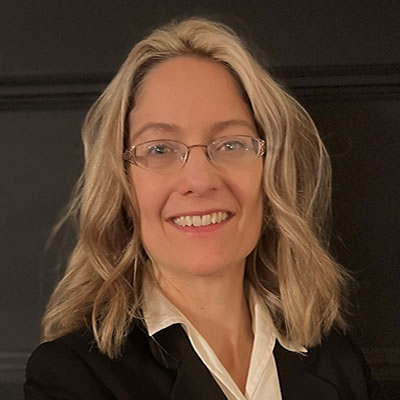Anne Cleary
Professor
Cognitive Psychology
Office: 243 BHSCI
Phone: (970) 491-7701
Email: Anne.Cleary@colostate.edu
Web Page: https://psychlabs.colostate.edu/human-memory/
Education: Ph.D., Case Western Reserve University, 2001
Area of Specialization: Human memory, retrieval failure, residual memory during retrieval failure, subjective experiences of memory, deja vu, tip-of-the-tongue experiences
Teaching Courses: Cognitive Psychology (PSY 452), Science of Learning (PSY 152)
Office Hours:
Monday- 11:00am-12:00pm | Tuesday- | Wednesday- | Thursday- | Friday- | By Appointment- X
Current Research: I study human memory. Human memory is far from perfect. Very often, it seems to fail us. We attempt to retrieve something from memory and fail to do so. In short, retrieval from memory sometimes (maybe even often) fails. My primary research interest is in residual memory during retrieval failure. That is, in what ways can people still display evidence of having some memory despite exhibiting a retrieval failure? For example, coming across a street sign with the name "Marston" may give you a sense that it reminds you of something, even if you cannot retrieve what that something is. One branch of my research attempts to identify what features of an item or situation can lead to a sense of recognition during retrieval failure. For example, do geometric shapes contribute to the sense of recognition with pictures and objects? Do phonemes contribute to the sense of recognition with spoken words? Can rhythm contribute to the sense of recognition with songs? Another branch of my research focuses on subjective experiences that suggest or relate to residual memory during retrieval failure. Among the subjective experiences that I study are: tip-of-the-tongue experiences (when people feel that a word is in memory, but cannot access the word), déjà vu experiences (when people have a feeling of having been someplace or done something before, despite knowing that they have not), and the sense of familiarity.
Publications
Cleary, A.M. & Claxton, A.B. (2018). Deja vu: An illusion of prediction. Psychological Science, 29 635-644
Cleary, A.M. & Claxton, A.B. (2015). The tip-of-the-tongue heuristic: How tip-of-the-tongue states confer perceptibility on inaccessible words. Journal of Experimental Psychology: Learning, Memory and Cognition, 41, 1533-1539
Cleary, A.M., Brown, A.S., Sawyer, B.D., Nomi, J.S., Ajoku, A.C., & Ryals, A.J. (2012). Familiarity from the configuration of objects in 3-dimensional space and its relation to deja vu: A virtual reality investigation Consciousness and Cognition, 21 452-460.
Kostic, B. & Cleary, A. M. (2009). Song recognition without identification: When people cannot "name that tune" but can recognize it as familiar. Journal of Experimental Psychology: General, 138, 146-159.
Lab
Cleary Memory Lab: This laboratory engages in the scientific study of human memory. There are many ways to study human memory. In our laboratory, we conduct experiments aimed at investigating and teasing apart various human memory processes. We examine many aspects of memory, such as how people recognize that something was experienced recently, or what sorts of activities lead memory to be better or worse. In recent years we have focused a lot on residual memory during retrieval failure. A classic example of is when a person recognizes another person's face as familiar, but cannot recollect the details of when or where the face was seen before. Much of our research attempts to address what features of an event or situation can give rise to a sense of memory during retrieval failure, and what types of mental processes underlie the sense that something is familiar or the sense that something is in memory during retrieval failure. We also investigate subjective states that relate to the sense that something is in memory when we fail to retrieve it, such as tip-of-the-tongue experiences. Along these same lines, we also investigate subjective states that relate to the sense of familiarity, such as deja vu. Recently, we have been investigating how these types of subjective states during retrieval failure affect decision-making.
Location: Behavioral Sciences Building
Research Projects
Recognition without Cued Recall: The recognition without cued recall effect (Cleary, 2004; Ryals & Cleary, 2012) is the finding that people can recognize a test cues as resembling an earlier-presented item, despite an inability to recall the earlier presented item. Our laboratory uses the recognition without cued recall method as one of our techniques for studying residual memory during retrieval failure.
Tip-of-the-Tongue Experiences: Tip-of-the-Tongue Experiences (TOTs) refer to the sense that a word is in memory but is failing to be retrieved. Our lab has shown that people can detect the fact that a word was presented recently, without being able to access to the word itself from memory. Our lab has also shown that people use tip-of-the-tongue states to make inferences about the unretrieved information.
Deja vu: Deja vu is the sense of having been somewhere or done something before despite knowing that this is the first time. Our lab has used virtual reality to investigate the types of situations that can drive deja vu. Our results have suggested that the experience of deja vu may be a form of residual memory during retrieval failure. Our research also suggests that the state of deja vu can give rise to an illusory sense of prediction, and that high familiarity intensity may be a driver of this illusion.